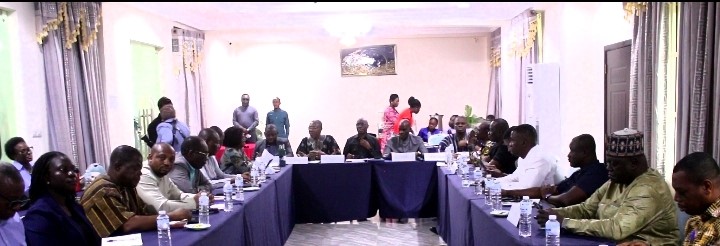
Key Priorities and Reforms in Ghana's Education Sector
During a parliamentary committee session in Koforidua, the Minister of Education, Mr. Haruna Iddrisu, outlined key priorities and ongoing reforms within the education sector. His remarks emphasized a comprehensive approach to improving foundational learning, higher education, and infrastructure. The minister highlighted the importance of legislative oversight in ensuring transparency and accountability within the education system.
Mr. Iddrisu stressed that through these oversight activities, the government can demonstrate how effectively public resources are being used to support education, which is fundamental to achieving sustainable development. He pledged continued involvement in these efforts, emphasizing their role in holding the Ministry and its agencies accountable.
One of the major challenges identified by the minister was the significant infrastructure deficit in basic education. Despite the constitutional promise of free and compulsory basic education, there remains a shortfall of about 5,000 schools operating under trees. This highlights the urgent need for equitable financing in basic education, as early learning has a profound impact on a child’s future.
The government has made a commitment to prioritize basic education, particularly its financing, as a cornerstone for national development. While acknowledging the positive impact of the Free Senior High School (SHS) policy in expanding access to education, Mr. Iddrisu raised concerns about its financing model. He noted that the program relies on annual budget allocations from the Ghana Education Trust Fund (GETFund), which risks undermining the fund’s primary mandate of infrastructure development.
In addition to these issues, the minister provided an update on the ongoing West African Examination Council (WAEC) examinations. He assured the public that thorough preparations have been made by the Ghana Education Service (GES) and WAEC, with government support in terms of security and logistics. An investigation into reported exam-related threats and malpractice was announced, reinforcing the government’s “zero-tolerance stance on cheating.”
Mr. Iddrisu commended the Director-General of GES for ensuring the smooth conduct of the examinations despite some disturbances. He reaffirmed the government’s commitment to providing a secure environment for students during the exams.
On the topic of higher education, the minister reaffirmed the government’s dedication to expanding access and enhancing quality across all levels. He highlighted the pending Ghana Scholarship Authority Bill, expressing optimism about its imminent passage. The bill aims to formalize scholarship management and had gone through Cabinet, awaiting parliamentary approval.
The minister expressed openness to public input on the bill, citing constructive proposals from various stakeholders. He committed to revising Clause 4 to ensure broader representation on the governing council. Additionally, he proposed allocating 2% of Ghana’s oil revenue to the Scholarship Authority to ensure sustainable funding.
Mr. Iddrisu also addressed the lack of a legal framework for scholarships since 1960, revealing outstanding scholarship debt of about 40 million pounds. To address this, he proposed merging the Scholarship Authority with the Ghana Student Loan Trust to create a comprehensive entity responsible for scholarships and bursaries.
Reforms at universities such as CK Tedam, UENR, SDD-UBIDS, and UHAS included infrastructure development funding. Plans were also announced to complete the teaching hospital at Kwame Nkrumah University of Science and Technology (KNUST), requiring additional funds.
The minister advocated for technical and vocational education (TVET) as a solution to unemployment in Ghana. He announced plans to upgrade the Accra Technical Training College into a National Institute of Technology, modeled after Japan’s “KOSEN” system.
Regarding food procurement for senior high schools, the government had released GH₵800 million to the Conference of Heads of Senior Secondary Schools (CHASS). Discussions were ongoing to share the responsibility for food supply between CHASS and other entities.
Mr. Peter Kwasi Nortsu-Kotoe, Chairman of the Parliamentary Select Committee on Education, welcomed the minister’s address, commending the Ministry’s efforts and expressing the Committee’s commitment to oversight. He acknowledged recent budget approvals and urged the Minister to facilitate the return of funds that had been redirected from specific infrastructure projects.
He also highlighted logistical constraints faced by the Complementary Education Agency and called for urgent action to recruit staff for critical vacancies. The chairman praised the Minister for prioritizing funding to WAEC, noting that a significant portion of required resources had already been released.
With the Minister’s leadership, the Committee expressed confidence in resetting the agenda for education in the country, assuring full support in advancing educational reforms.
